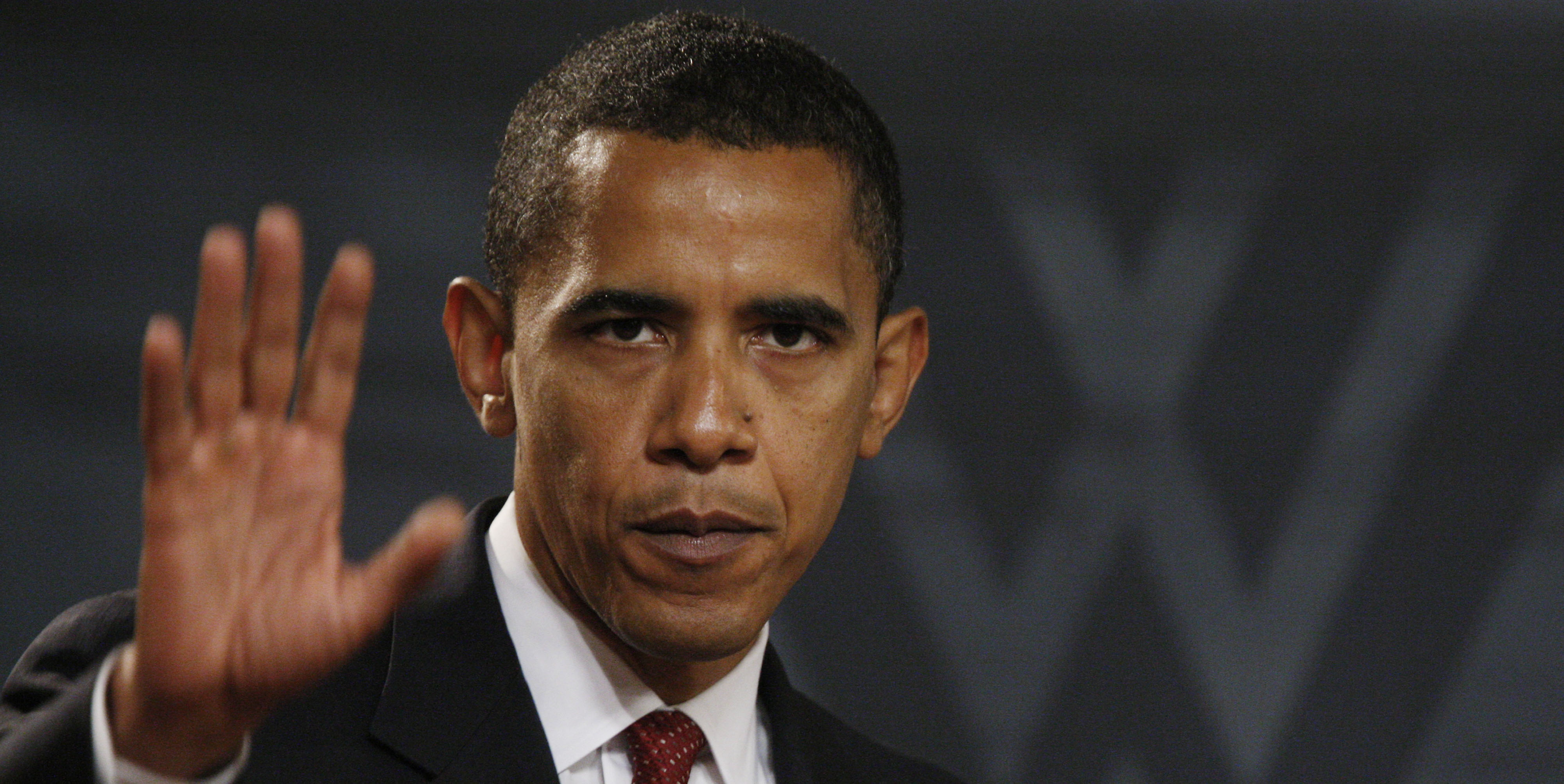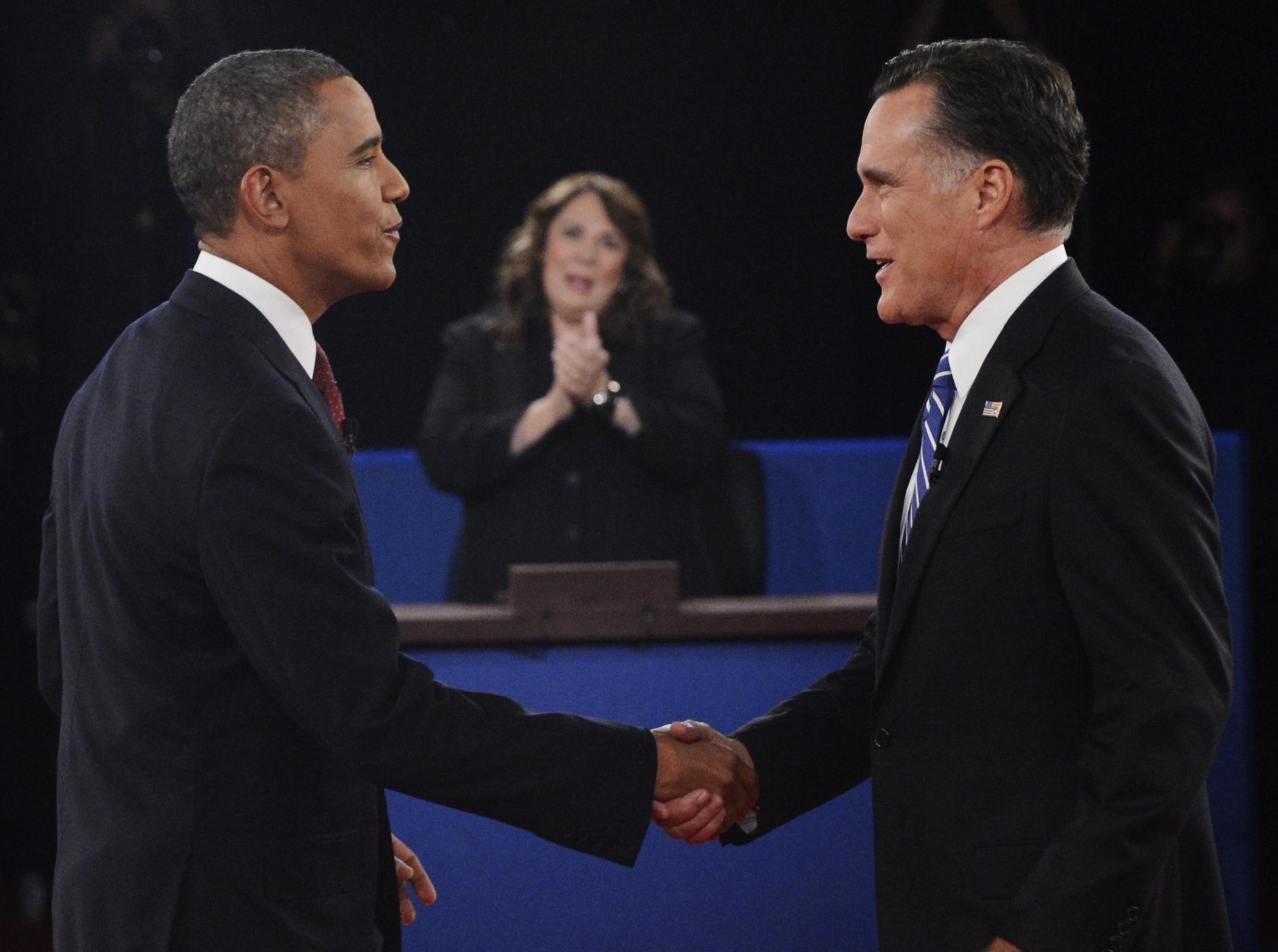(The Verge) — On the night of November 6th, 2012, more and more polling places gradually closed, and through the different time zones, news outlets received continual conformations that electors had been casting their votes for President Obama. At around midnight, it became clear that the incumbent would win the election and serve another four years as our commander in chief. He breezed through the electoral college vote, winning all of the urban and densely populated areas of the United States. He also fared well with college and minority voters. Ultimately, Governor Romney conceded, and with his loss, the GOP went into a substantial amount of disarray. When all the votes were accounted for, Mitt Romney had won 24 states and earned 59,832,706 popular votes while the President won 26 states plus Washington D.C. and earned 63,823,729 popular votes.

It’s been fourteen days since the landmark election. Although winning over the voters who assumed the economy was our biggest issue, Mitt Romney could not convince a majority of Americans that our $16 trillion debt was troublesome enough to change guards. Also, he couldn’t convince the lower class that he would keep them financially stable. Entitlements became a valuable aspect to Obama’s resume’ and those who were voting on cost-of-living and quality of life grounds stuck with Obama in hopes that he will maintain his handouts, as many Republican strategists call them.
About ten days after the election, Mitt Romney came forward and described the reasoning behind his loss. Against the wishes of many Republican opinion leaders such as Former Speaker of the House Newt Gingrich, he said that the President’s ‘gifts’ (free healthcare, forgiveness on college loans and free contraceptives) to black, Hispanic and young voters won a majority of people over. He also noted that Obama painting him as an ‘anti-immigrant’ candidate was quite hurtful. The “DREAM Act” in granting amnesty to children of illegals and Obama’s focus on minor, niche, demographic issues led minority and young voters to go to the polls in support of Obama. In a roundtable ABC interview, Republican leaders criticized the comments, calling it hurtful for the GOP which has now alienated a substantial bloc of voters.
Working for FOX‘s election night panel, Bill O’Reilly reported the facts of what the votes had shown, and saying that America is no longer

traditional as low-income voters seek government handouts, he noted that the four million vote gap between voters making less than $30,000 (who as a whole, are seemingly minority voters) who supported Obama and those who supported Romney are quite telling. Also commenting on The Factor, converted conservative and former Saturday Night Live personality Dennis Miller agreed with the notions that traditional America has disappeared. He did not say that everything as he knew it would change or that the heavens would fall because of the path America was taking, but that slowly we are becoming a country whose citizens are more dependent upon government. These debates have raged endlessly with Republican party members since the election, but also using the numbers, Democratic leaders have said that the tribe has spoken. America has declared Obama’s policies satisfactory and that the path to further recovery may just involve ObamaCare and taxing the “1%” (those who make $250,000 and more). Mitch McConnell and John Boehner, Republican Congressional leaders, have already vowed to prevent a tax hike from occuring, instead suggesting that America go against Obama’s wishes and close tax loopholes to reduce the deficit. With a “fiscal cliff” nearing though (set for January 1, 2013), compromise may need to be introduced into the vocabulary of some of these leaders. Some will have to give and take in order for the nation to prevent a dramatic and problematic spending decrease from the next year’s budget. Some sort of legislation needs to meet the President’s desk before the new year, or else America would apprehensively be put in an awful position. But this remains a problem that can be solved with cooperation and priority-setting.
As if all of this was not enough…when the dust of the election settled, more pressing issues quickly developed. States from across the nation petitioned the White House to secede from the Union, including Texas, Louisiana and 28 more states. After reaching the minimum amount of signatures needed to be heard by the White House, the petitions became official and flooded the executive branch’s website. Not sure exactly how the matter will be handled as the issue progresses, but many media experts and political analysts suggested that it is just something to laugh off. Although over 700,000 signatures were collected at one point last week, that is still less than 1% of the U.S. population, so until matters get a little juicier, I don’t see any CSA’s or Republic of Texas’ forming.
Also, former General and head of the CIA, David Petraeus resigned amid allegations of an extra-marital affair with his biographer. Cable networks were all over the event, broadcasting news on the issue around the clock, and eventually it became a substantial part of Barack Obama’s content for his first press core briefing in eight months. A key figure in the Benghazi attack investigation, Petraeus had personally investigated much of the event, so many thought the resignation could be an aim at saying something (maybe government) compromised/botched the handling of the Libya attack. With Petraeus’ personal scandal aside, Arizona Senator John McCain was one of the Congressional figureheads who suggested a Watergate-like investigation ensue about the Libya attack. Noting that the murder of a US Ambassador is nothing to play-off or simplify, he called for a Senate committee to investigate the attacks, to find out if the White House handled the debacle to the best of their abilities. U.N. Ambassador and Secretary of State hopeful Susan Rice was the scapegoat for many angry Republican leaders. They claimed she was the puppet put out on public television to lie about the White House’s handling of the Libyan events shortly after they unfolded. But a Democratic Congressman has gone far enough to say that the criticisms placed on Susan Rice are clearly race-driven and problematic; needless to say, foreign policy matters are kind of in shambles at the moment. (And this was even before the Israeli-Gaza confrontation fully unraveled…)
Just a few days ago, a Hamas militant-arm leader was killed in an Israeli airstrike, triggering a fierce military exchange between Israeli forces

and the Hamas-led Palestinian territory of the Gaza Strip. Hundreds of rockets have been fired between both sides, and major Middle East cities such as Tel Aviv, Jerusalem and Gaza remain on edge for anticipation of daily airstrikes. The strikes have already killed members of both sides, including a recent murder of an Israeli soldier, which may delay the talks of a ceasefire between the two. Schools, strategic media buildings, etc. have all been the subjects of some of these raids, and much debate has been cast in recent days over the White House’s handling of the feud. As America promised to be staunch allies to the Israelis, some have questioned what we will do to help our friends overseas.
The U.S. Government has already placed sanction-like threats on nearby Egypt, telling them that they must put forth effort in downgrading the tensions between the two sides or else face a cut of the federal aid we provide them. Egyptian President Mohammad Morsi has promised to help in the deescalation, but many think he would be ‘all-in’ for helping to bomb Israel had we not placed financial sanctions on him. A member of the Muslim Brotherhood, President Morsi provides a scare for many leaders, who associate the brotherhood with terrorist sympathies. Some even suggest that the conflict in the Palestinian territories between the sects of Islam and Judaism will escalate into an uncontrollable ground war. With thousands already dying in Syria, this is surely something the U.N. and NATO want to avoid at all costs. It could even trigger a conundrum with the U.S. and Iran, each willfully pulled into the mess. If we get into bouts with Iran, our most problematic enemy, who’s to say what could happen next. But as Secretary of State Hillary Clinton tours the area to speak diplomacy with the foreign leaders, most maintain the peace-brokering is going on and the violence will soon end (though it has really been ensuing for decades).
…President Obama’s second term has not even begun yet, and he is already dealing with world-class matters of politics, diplomacy and national security. His historic tour of parts of Asia such as Burma was a bit side-tracked when news of the Israeli airstrikes became known, but as he works tirelessly to answer everyone’s questions and minimize threats from abroad, one thing is for sure: he sure has his work cut out for him in the next term. If no results are felt, clearly he’ll feel criticisms from every-which direction.





Your article “Election post mortem” is a well written update of how volitile the political scene has become since the election. The cease fire in Gaza is 24 hrs old now & things appear to be improving. The Fiscal cliff is the next BIG issue. I hope we all survive the ipending apocalyps !
Christie 2016 ! ! !
Great article ! Keep up the good work !
Great article !